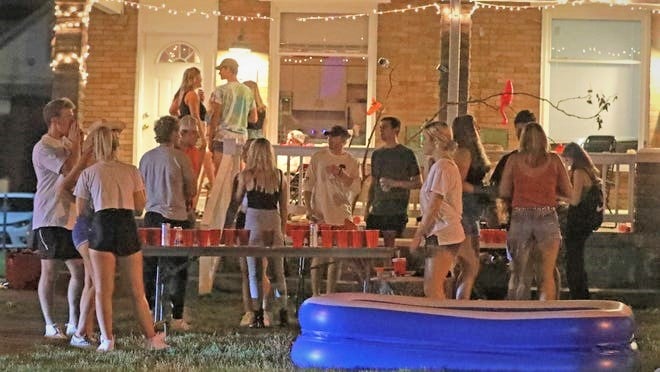Neal Schwartz
- 29 Apr, 2021
- 0 Comments
- 4 Mins Read
HOW INCOMING FIRST-YEARS CAN MANAGE THEIR COLLEGE EXPECTATIONS

Getting into college is a major achievement. Especially in the aftermath of pandemic drama, this years’ seniors may feel even more relief than former generations. After braving the frantic testing-drop by many colleges and being evaluated in greater depth by admissions officers, the 2021 incoming class of First-Years will prove to be resilient and diverse.
Admitted students might start getting flooded with expectations. College can be an experience quite different from high school because of the freedom in academic schedule, activities, and the fact that parents are often far away. Many students get caught up in the dilemma of “wanting to fit in.” And sometimes that equates to drinking and partying, to relieve the pressure of adjusting to a new environment with hundreds or thousands of strangers around. However, there are some common misconceptions about how many college students actually drink.
Now that a student has been admitted, it’s important to remind them that being smart always wins out over having (too much) fun. Being admitted doesn’t justify senioritis or making risky decisions; students will still have to prove that they belong in the incoming class, and will therefore need to pay attention to their behavior between now and September. Overall, the currency of the student who has just made their deposit by May 1st also has a parent who is counting the days until the student starts school. Which leads to the question of whether or not the student will test the limits of their summer independence. Students that have been building up to this moment for thirteen years often act out differently than expected.
The truth is, though, even admitted students are still vulnerable until they step foot on campus. This period can be critical for both parents and students. Students may feel that they need to celebrate, but this should be taken in moderation, because any false steps can be noticed by admissions officers and compromise admission.
Students should therefore focus on a few key goals. First, keeping up their academic integrity. Just because the grades and GPA are submitted doesn’t mean that colleges won’t notice a steep drop in grades in the spring semester. Students should keep up the motivation until the end of the year, which will only help them springboard into a successful first year of college.

Second, students should stay true to their social habits and not be too concerned about pressure to drink and party. Many students that are ordinarily well-behaved may be tempted to completely break free, but ultimately this is not how students really behave in college. Students like this might have avoided putting “party” schools on their list, but even at “party” schools, the mythology is much stronger than the reality. In reality, there are many students that don’t drink at all in college, or drink very moderately. According to an article by Jessica Lahey, “Perception shapes reality: alcohol continues to play a key role in college social life not because students want or need alcohol to be a part of the festivities, but because the individual students organizing the festivities believe other students will want to drink and expect it to be available.” So this means that college alcoholism is a product of social expectations, but not necessarily what students want or need. She continues, “The number of college students who drink has hovered around 44 percent for years, and the statistical average number of drinks per week for college students is five. However, this number is deceptive, because the heaviest-drinking college students consume 68 percent of all the alcohol drunk on campus, and the heaviest binge drinkers chug 72 percent of all alcohol consumed by college students.” So the numbers become quite skewed due to the binge drinkers, throwing off student expectations.
Third, students should be careful, as always, about what they post on social media. This is probably the easiest trap that students can fall into, because it is so simple for a peer to rat out someone who posts questionable content. And on the Internet, there is proof of everything. So please, students, if in doubt, don’t post.
This leads us to wonder what college socialization will look like, post-pandemic. Will students be less tempted to drink because of distancing restrictions? Will there be a change in the paradigm and a new focus on mental and physical health? That’s for time to tell. But until then, students should try to manage their expectations and remain open-minded about the next four years, to make the best of them despite the circumstances.
Does your student need help getting on track for college? Give us a call to schedule a free consultation today!
Best Regards,

Neal Schwartz, Owner
College Planning of Westchester
[email protected]
914-273-2353 (office)
914-500-5899 (mobile/text)
NOW IN OUR 19TH YEAR

NOW REGISTERING FOR OUR:
COLLEGE COUNSELING PROGRAM AND SAT/ACT TEST PREP PROGRAMS
NOW IS THE BEST TIME FOR TEST PREP AND COLLEGE APPLICATIONS
Register Today









